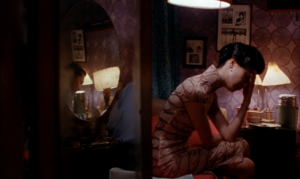On 19 February 2016, I sat in a small conference room in the Hotel Grand Chancellor, Melbourne. A small sign on the door of the room, handwritten in permanent marker, announced the occasion: ‘Video Games Inquiry. Dept. of the Senate.’
This moment was a long time in the making. In a landmark funding move, Julia Gillard’s Labor government had instituted the A$20 million Australian Interactive Games Fund in 2013, which was scuttled soon after Tony Abbott took charge a year later. The games industry’s heads and peak bodies had been campaigning for many years before that and, since even the 1990s, had been pushing for funding and support – especially tax breaks similar to those received by the film and television industries. Though state government support for videogames does exist (particularly in Victoria), the federal government’s cultivation of the industry has historically been scattered and piecemeal. In the lead-up to the 2016 inquiry, then–Greens senator Scott Ludlam had been agitating for Malcolm Turnbull’s government to take an interest in Australia’s games industry. At the time, there was momentum, however slight.
The inquiry committee travelled to Melbourne, Sydney and Brisbane, and heard from dozens of witnesses, including game makers, business owners, educators and researchers. I attended the Melbourne hearing as one of the 111 individuals and groups making a submission; I had been called in to speak before the committee as an observer of the industry. Things generally seemed to go well and, after the hearings concluded, a unanimous report was created. The Liberal, Labor and Green committee members had all reached a fundamental agreement on one thing: the federal government should support the Australian games industry. That was in April 2016.
It took the Turnbull government until January 2018 – after 642 days and several promised and missed deadlines – to respond. And this recent official response was not encouraging. Of the eight recommendations made by the multi-partisan committee, only one was supported: that the uptake of ‘serious games’ in health care, education and other sectors be encouraged. Yet this was a topic that had served as a slight red herring throughout the hearings, as it wasn’t really in the inquiry’s original remit. In Australia, serious games make up a small subsection of a small industry – this is hardly a major win – and, even then, the government added the caveat that the industry should be the one to actually enact and bear the cost of implementing this recommendation.
Two further recommendations were outright rejected by the government: the introduction of long-sought-after tax offsets and the suggestion to consider the tax implications of crowdfunding (a common way to fund videogame development). The remaining five recommendations were simply ‘noted’ in the government response – this included things like the reinstatement of the Australian Interactive Games Fund, the development of shared working spaces, and the need for the government to monitor the health and diversity of the games industry’s workforce.
The industry response to this lukewarm set of outcomes was, as might be expected, indignant. ‘Gutting’, ‘a slap in the face’ and ‘incredibly moronic’ were some of the descriptions used by prominent Australian game developers on social media at the time. The Interactive Games and Entertainment Association, the peak body responsible for game distribution in Australia and New Zealand, released an official statement that similarly pulled no punches: ‘To say we are disappointed with the government’s response to the Senate Inquiry would be to understate things.’ In contrast, the Game Developers’ Association of Australia, which represents those at the more creative end of the spectrum, was more circumspect: ‘This is the response we expected,’ it tweeted, ‘and a starting point for a broader conversation with a government that acknowledges the needs of our industry.’
It’s hard to say where this leaves the Australian games industry, however. Clearly, short of a change in regime, support seems unlikely to come from the federal government any time soon. Yet this points to greater issues: there was little outcry outside of the industry when the Abbott government scrapped support for games, and there was little response outside of gaming communities when this lacklustre Senate Inquiry response was released.
Put bluntly, the federal government can act fairly carelessly towards Australian games because there’s little to stop them doing so. There is scant political will to support games in Australia at the federal level – there is no obvious political gain, pressure or policy narrative to do so, despite any prudently put case. Australian videogaming represents a small industry (around 900 full-time employees) whose popular image is either one of depravity (the Grand Theft Autos of the world), excess (that every games company must be an uber-rich Silicon Valley start-up), absence (games must be made overseas and not here) or invisibility (surprise that a games industry even exists).
The art and culture of games, and the Australianness of the national industry, have not been articulated to the point where they can be converted into political pressure. Until that happens, Australian game developers may have to continue on their own.





